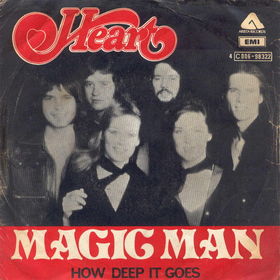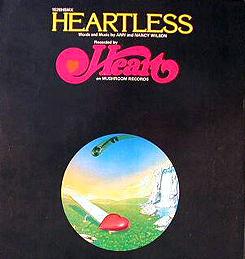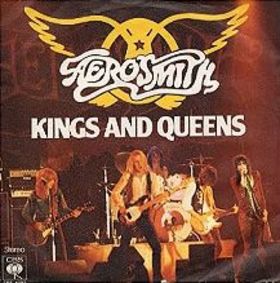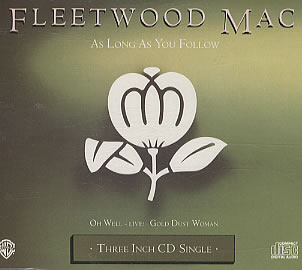
Heart is an American/Canadian rock band formed in 1973 in Vancouver, British Columbia. The band evolved from previous projects led by founding members Roger Fisher (guitar) and Steve Fossen, including The Army (1967–1969), Hocus Pocus (1969–1970), and White Heart (1970–1973). By 1975, original members Fisher, Fossen, and Ann Wilson, along with Nancy Wilson, Michael Derosier (drums), and Howard Leese formed the lineup for the band's initial mid- to late-1970s success period. These core members were included in the band's 2013 induction into the Rock and Roll Hall of Fame.

"Rock and Roll Music" is a song by American musician and songwriter Chuck Berry, written and recorded by Berry in May 1957. It has been widely covered and is one of Berry's most popular and enduring compositions.

"Don't Stop Me Now" is a song by the British rock band Queen, featured on their 1978 album Jazz and released as a single on 26 January 1979. Written by lead singer Freddie Mercury, it was recorded in August 1978 at Super Bear Studios in Berre-les-Alpes (Alpes-Maritimes), France, and is the twelfth track on the album.

Little Queen is the third studio album by American rock band Heart, released in May 1977 by Portrait Records. The album was recorded and mixed at Kaye-Smith Studios in Seattle, Washington, from February to April 1977. On June 29, 2004, a remastered version of Little Queen was released by Epic Records and Legacy Recordings with two bonus tracks.

"Flash" is a song by British rock band Queen. Written by guitarist Brian May, "Flash" is the theme song of the 1980 film Flash Gordon.

Dreamboat Annie is the debut studio album by American rock band Heart. At the time, the band was based in Vancouver, British Columbia; the album was recorded in Vancouver and first released in Canada by the local label Mushroom Records in September 1975, eventually reaching number 20 on RPM's Top Album chart and earning a double platinum certification. It was released in the United States on February 14, 1976, through the US subsidiary of Mushroom Records in Los Angeles, peaking at number seven on the Billboard 200. It also reached the top 10 in the Netherlands and Australia in early 1977. The album contains three commercially successful singles, two of which, "Crazy on You" and "Magic Man", became staples on North American FM radio. Producer Mike Flicker helped the group to polish their sound and obtain a recording contract with the label.

"Somebody to Love" is a song by the British rock band Queen, written by lead singer and pianist Freddie Mercury. It debuted on the band's 1976 album A Day at the Races and also appears on their 1981 compilation album Greatest Hits.

"Fat Bottomed Girls" is a song by the British rock band Queen. Written by guitarist Brian May, the song appears on the band's seventh studio album Jazz (1978) and later on their compilation album Greatest Hits. When released as a single with "Bicycle Race", the song reached number 11 in the UK Singles Chart and number 24 in the Billboard Hot 100 in the US.

Magazine is the second studio album by American rock band Heart. It was originally released on April 19, 1977, by Mushroom Records in unfinished form, without the band's permission. A second authorized version of the album was released on April 22, 1978. The album has been certified platinum in both the United States and Canada.

"Magic Man" is a song by the American rock band Heart released as a single off their debut album, Dreamboat Annie. Written and composed by Ann and Nancy Wilson, the song is sung from the viewpoint of a young girl who is being seduced by an older man, much to the chagrin of her mother, who calls and begs the girl to come home. In an interview, Ann Wilson revealed that the "Magic Man" was her then boyfriend, band manager Michael Fisher, and that part of the song was an autobiographical tale of the beginnings of their relationship. Roger Fisher came up with the alternative tuning EADGDG for his guitar part. The album version of "Magic Man" features an over-two-minute instrumental break which consists of a guitar solo and the usage of a Minimoog synthesizer, while the single version of the song edits out most of this break, cutting it down from 5:28 to 3:29.

"Crazy on You" is a song by American rock band Heart from their debut studio album, Dreamboat Annie (1975). It was released in March 1976 as the album's third single in Canada and the album's debut single in the United States. It reached the top 25 in Canada and the top 35 in the US. It found more success in the Netherlands and Belgium where it peaked at number 2 and 13, respectively, in early 1977 after its release as the second single from Dreamboat Annie in those countries. It is considered one of Heart's signature songs as it is one of the most played tracks on classic rock radio stations in the US.

"Barracuda" is a song by American rock band Heart, released in 1977 on their third studio album, Little Queen, and was released as the album's lead single. The song peaked at number 11 on the Billboard Hot 100. In 2009, "Barracuda" was named the 34th-best hard rock song of all time by VH1.

"Kick It Out" is a short, fast-tempo hard rock song recorded by the rock band Heart, written by Ann Wilson. It was released as the third and final single from the band's second album Little Queen in 1977. When released the song did not perform as well as previous Heart singles, reaching number seventy-nine on the U.S. Billboard Hot 100 and number sixty-seven on the U.S. Cash Box Top 100.

"Heartless" is a song written and recorded by the rock band Heart in 1976 for their album Magazine. Issues with the band's previous record label Mushroom caused a delay in the album's release and "Heartless" was released as a single two years later, after the re-issue of their first single "Crazy on You".

"Straight On" is a song recorded by the rock band Heart. It was released as the first single from the band's 1978 album Dog & Butterfly. In the U.S., "Straight On" became Heart's third single to crack the top twenty, peaking at number fifteen on the Billboard Hot 100. The song was co-written by Ann Wilson, Nancy Wilson, and Sue Ennis. "Straight On" was released during Heart's classic era and has been part of the group's setlist almost constantly since its release. It still was during their 2016 tour.
"Even It Up" is a song recorded by the rock band Heart. It was released in 1980 as the first single from the band's fifth studio album Bebe le Strange. The song is an uptempo rock and roll number which lyrically is sung by a woman who is demanding that her lover "even it up" by reciprocating the effort that she has put forth in their relationship.
"Bebe le Strange" is a song recorded by the rock band Heart. It was released in 1980 as the second single from the band's fifth studio album Bébé le Strange. It was the first song from the band not to chart on the U.S. Billboard Hot 100, and was the final single released from the album. Heart's fortunes reversed later in 1980 with the release of "Tell It Like It Is", which became a U.S. top-ten single.

"This Man Is Mine" is a song recorded by the rock band Heart. It was released in 1982 as the first single from the band's sixth studio album Private Audition.

"Kings and Queens" is a song by American hard rock band Aerosmith. It was written by Steven Tyler, Brad Whitford, Tom Hamilton, Joey Kramer, and Jack Douglas, their producer, who helped the band write many of the songs on Draw the Line. Douglas also played the mandolin featured in the song. The song first appeared on the album Draw the Line in December 1977 and was released as a single on February 21, 1978. The song was also used as a B-side to Aerosmith's version of The Beatles' "Come Together", released to promote the Sgt. Pepper's Lonely Hearts Club Band film and soundtrack.

"As Long as You Follow" is a song by British-American rock band Fleetwood Mac. Performed by Christine McVie and written alongside her then-husband, Eddy Quintela, the song was one of two new tracks on the band's 1988 greatest hits album, along with "No Questions Asked". Lead guitarist Rick Vito singled out the guitar solo on "As Long as You Follow" as his best work with Fleetwood Mac.

















